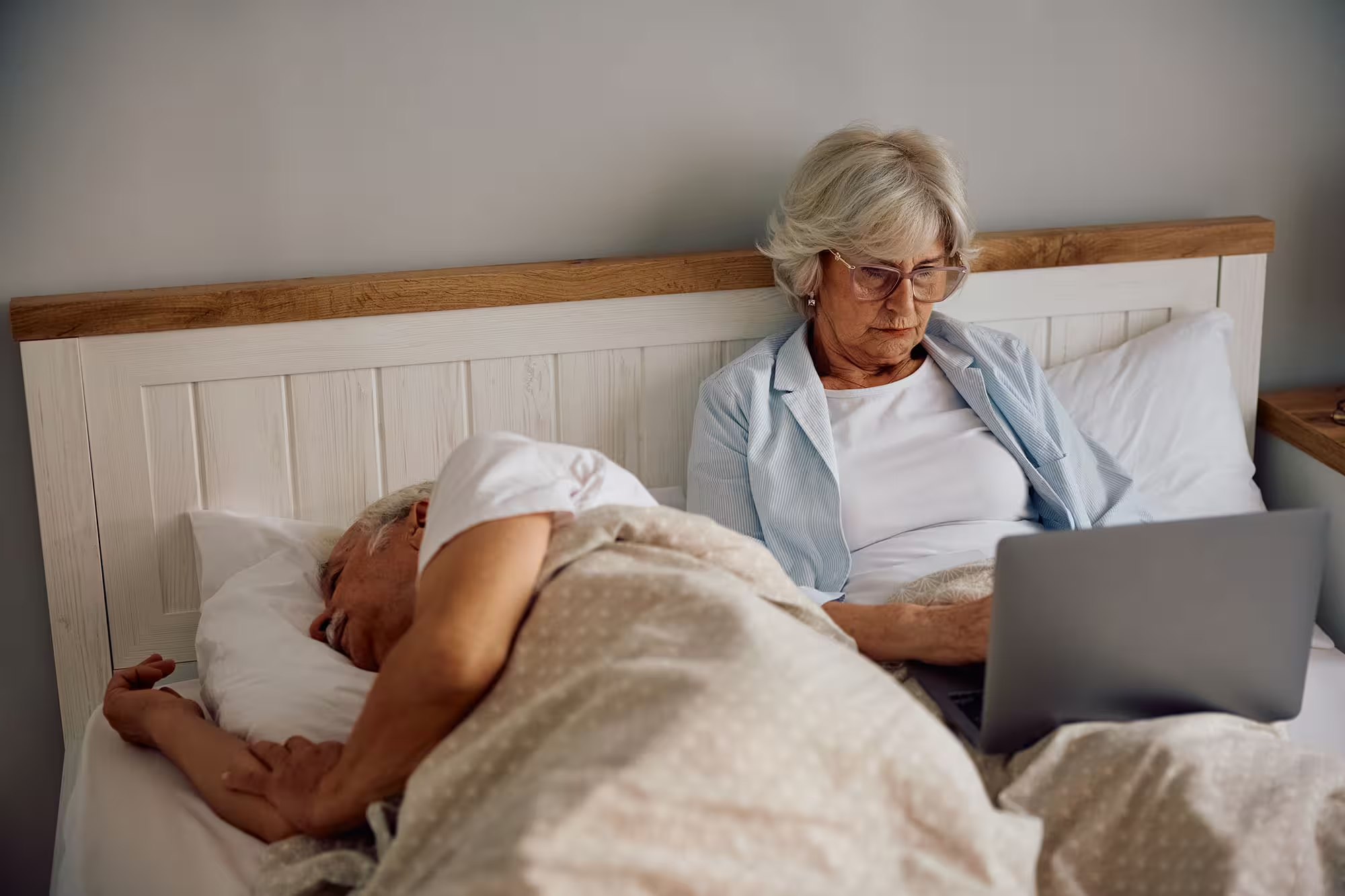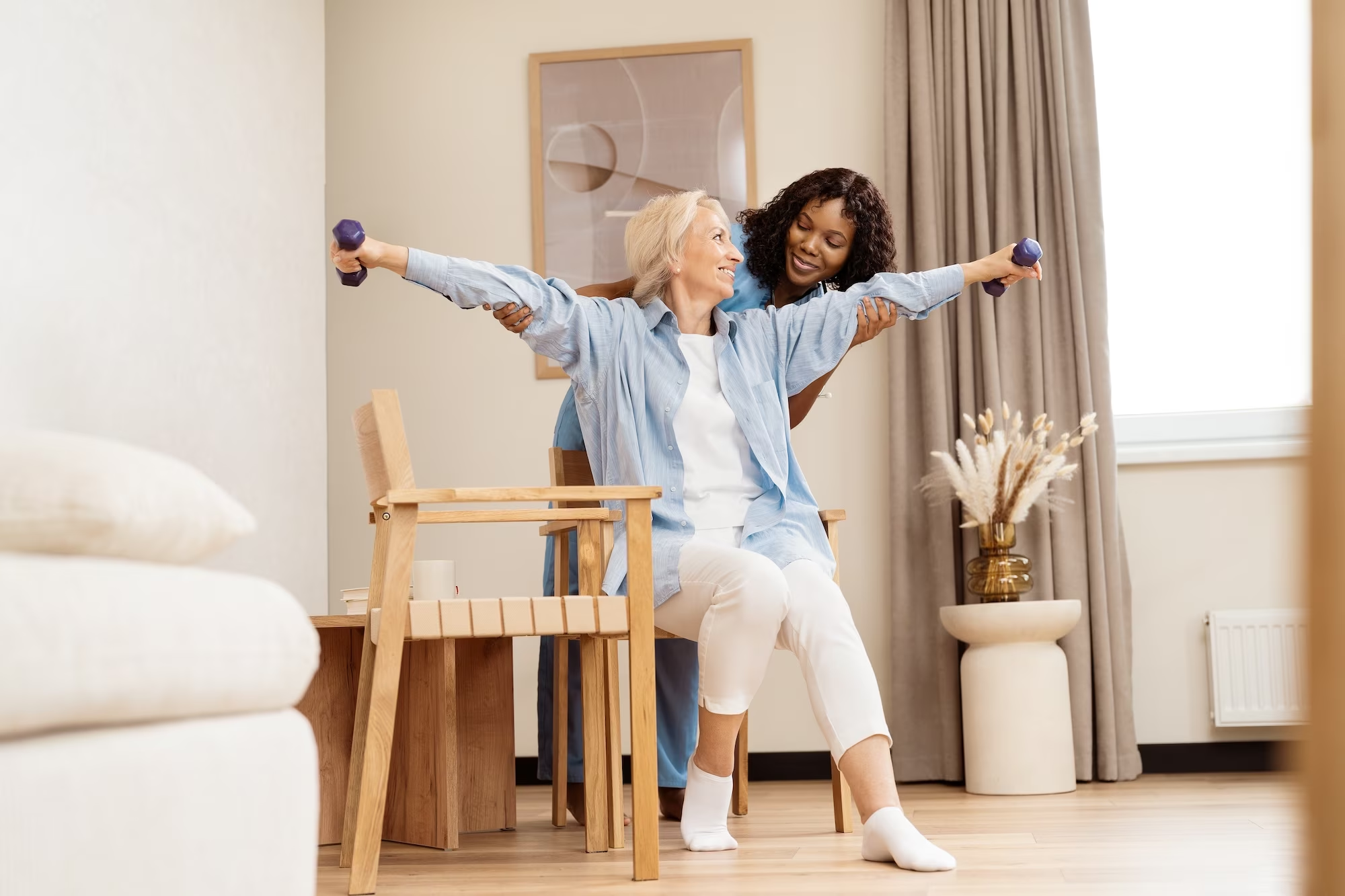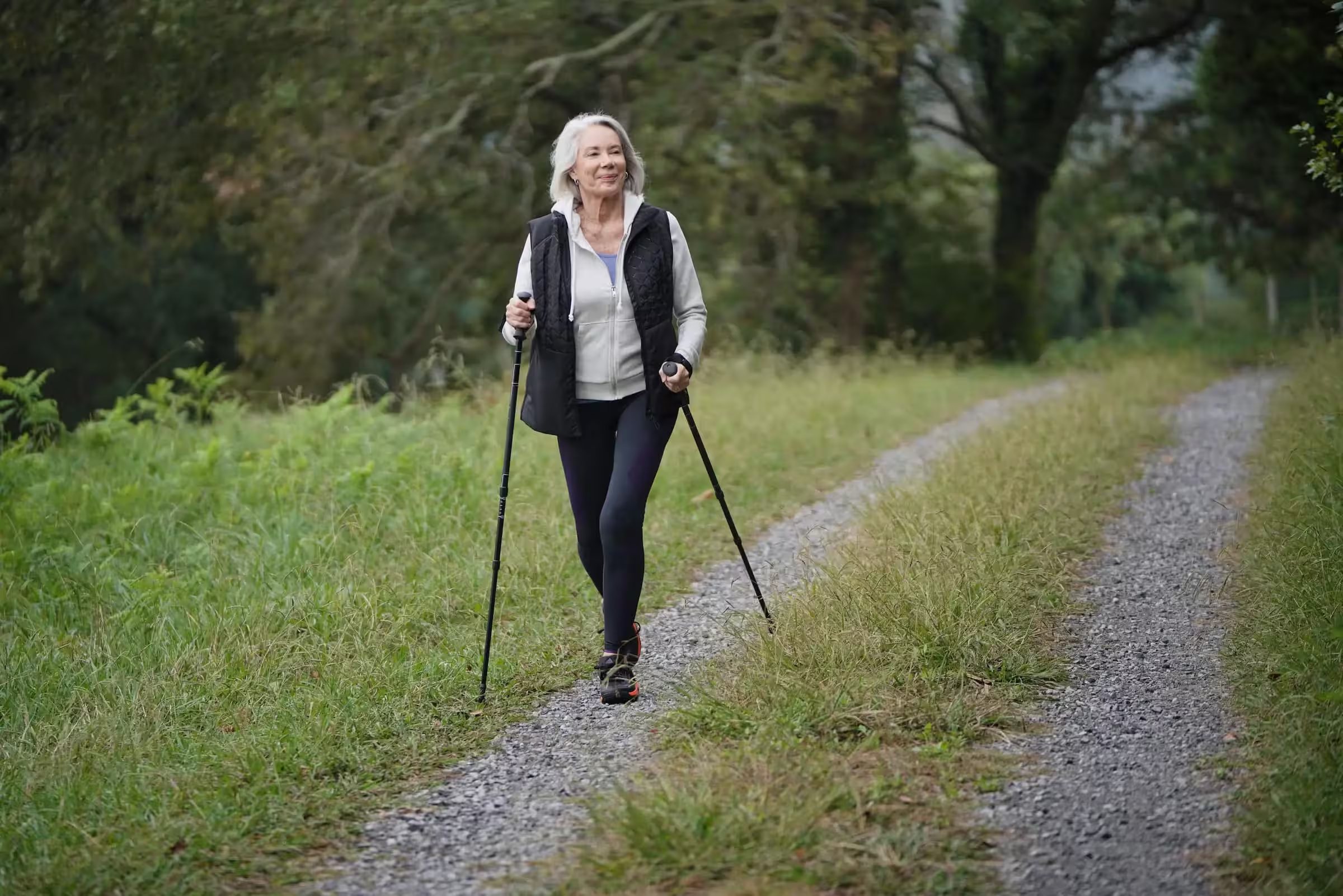About Dementia-Related Sleep Disorders
The dementia/sleep connection has been studied for many years; it’s like an ongoing circle that’s often hard to break. And when dementia disrupts sleep cycles, seniors have challenges falling asleep, staying asleep, and waking up feeling refreshed. Sadly, that can increase one’s dementia symptoms as time passes.
That’s the hard truth, but fortunately, help can be found. Once you learn about dementia-related sleep disorders*, the path becomes clearer, and you can find ways to help your loved one sleep better. At Ciela, our experts often face this issue, so we leverage certain methods to help our residents. You are not alone: Keep reading to learn about this connection, the symptoms, and how to help.
About Dementia-Related Sleep Disorders
Many people have trouble sleeping; it might even be a problem for you. Those with cognitive impairment face more struggles with this, though. According to the Mayo Clinic, 25% of individuals with mild to moderate Alzheimer’s have sleep troubles, as do about 50% of those with moderate to severe Alzheimer's. The symptoms include:
- Waking up too early in the morning.
- Waking up frequently at night.
- Trouble falling asleep.
- Feeling sleepy during the day.
Another concern is waking up confused with dementia symptoms, which in some cases is classified as Sundowners Syndrome. But what is sundowning, exactly? It’s a cluster of symptoms that occurs at a certain time of day, and the exact cause is unknown.
When it happens, the individual might feel anxious, restless, confused, or even aggressive. The issue of seniors with dementia waking up confused is serious; night wandering in that state could be hazardous for their health.
Does Dementia Cause Insomnia?
The Cleveland Clinic posts that researchers aren’t sure exactly what causes sleep disturbances in people with dementia. It’s likely due to multiple factors, like:
- Behavioral Changes: The behavioral symptoms of dementia can interfere with sleep. For example, heightened confusion and anxiety can prevent the mind from settling down enough to nod off.
- Brain changes: The underlying conditions causing dementia can impact the brain’s circadian rhythm. Experts also theorize that people with dementia might produce less melatonin, a sleep-promoting hormone.
- Sundowners Syndrome: This late afternoon and evening restlessness and confusion make preparing for bed and falling asleep difficult.
These factors can contribute to sundowning and other sleeping concerns:
- Hunger, thirst, or pain.
- Low lighting and shadows.
- Living somewhere with a confusing layout.
- Other medical conditions, like lung disease and heart disease.
Physicians may be able to rule out or diagnose other reasons for the sleep issues.
What about sleeping too much with dementia?
This is another sleep concern we see in seniors with dementia; they might be spending excessive time sleeping, especially in the later progression stages. As the brain weakens, simple tasks like eating and communicating can become exhausting. And if they’re taking medications like antidepressants, antipsychotics, or sleeping pills, those might also contribute to tiredness.
You might want to discuss a sudden onset of increased sleeping with your loved one’s physician. But when the sleepiness comes on gradually, it might just be indicative of the dementia’s progression.
How to Manage Dementia-Related Sleep Disorders
Minimizing triggers for wandering in dementia and sleep issues is possible, with the right approach.
- Note and minimize excessive sensory stimulation that can trigger confusion and anxiety. Examples include loud television volume and arguing at mealtimes.
- Changing light can feel chaotic to seniors with dementia; it’s challenging for their brains to interpret visual information. Keep lighting consistent with the time of day.
- Nutritional triggers like sugar and caffeine can affect sleep patterns. Also, remember to limit liquids later in the day; too much can increase toileting needs.
- Unstructured routines create stress for individuals with dementia. Increase activities early in the day, minimize naps, and prioritize calm evening activities.
- To create a bedtime sanctuary, remove unnecessary furnishings and add comforting bedding. An eye mask, light-blocking curtains, dim lights, and a temperature between 60 to 67 are all conducive to better sleep.
What can I do when someone is sundowning?
This can be an unsettling experience, especially if you’ve never witnessed it. Take a deep breath first, and don’t try reasoning with them. It’s better to validate their feelings, even when they aren’t making sense. Let them know you are listening, and gently change their focus from the troubling thoughts. This needn’t be complicated—mention the sunny day, your nice lunch, or share stories about your pet. Switching the topic can be surprisingly effective.
How Ciela Manages Dementia-Related Sleep Disorders
Changes in sleep patterns can be distressing for seniors and their families. We acknowledge how sleep significantly influences the health and well-being of individuals with dementia; that’s a fundamental aspect of the Ciela care approach.
We have dedicated memory care areas with open floor plans, comfortable furniture, and fully enclosed green spaces; residents move about confidently. They also benefit from a circadian lighting system that helps regulate their sleep and mood, plus a walking loop.
Our team members emphasize the importance of consistent daily routines. Regular meal times, scheduled activities, and nightly rituals serve as anchors for residents, gently guiding our beloved residents through their days and nights. This consistency can substantially diminish complications associated with sleep disturbances.
Establishing a familiar rhythm helps seniors understand what to expect from their day, making them feel more secure. They spend time outside and enjoy music, art therapy, gardening, and other activities. That security and sense of purpose can lead to improved sleep quality, addressing chronic issues such as sleeping too much with dementia and sundowning.
The link between cognitive function and sleep cannot be overstated: Good sleep hygiene can lead to better overall health for seniors, allowing them to live happier lives.


.svg)









